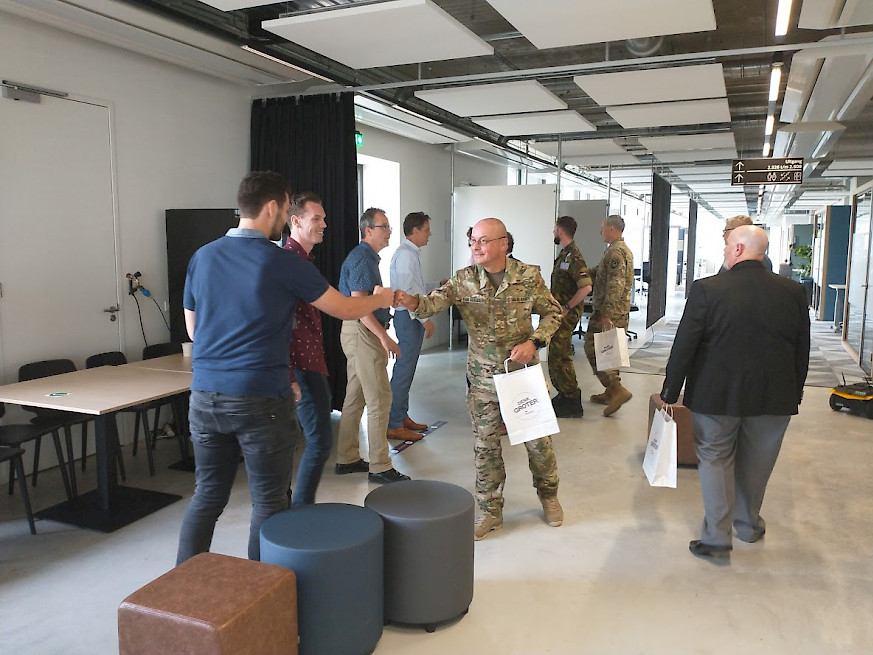 Autonomous and random navigation
Autonomous and random navigation
The team of Wouter and Daan worked on an assignment formulated by the Ministry of Defence, a work field partner of the Fontys ICT InnovationLab. The assignment: develop a robot that can move through an area autonomously and randomly for training purposes. Wouter: "This robot had to be able to navigate and avoid objects unpredictably, without human intervention. Military personnel in a training situation can then shoot at the robot with lasers. But more applications are conceivable, such as transport and communication." Wouter and Daan also explain that the image we have of robots is misleading; there is much they cannot do yet: "Often robots have a specific functionality. In the military arsenal you see many more technical applications than this, but autonomous and random functioning is fairly new. A lot of robotics is programmed and follows patterns."
The system we use, ROS (Robot Operating System), does have a navigation stack. This is a library that ensures that a robot can move properly, but the element of randomness is completely missing." The second part of the assignment was the use of a behaviour tree: "That is a certain thinking structure for a robot, which is fairly new and is getting used more frequently." Behaviour trees are often used in games to let non-player characters function autonomously via a choice tree. For robots, this is fairly new.
Step 1: Robot moving to destination autonomously
Important steps have been taken in the project: "What we have realised is that the robot moves to its destination autonomously. The random navigation factor is not there yet. It is of course a school project and there are limits to what we could do in this time." Wouter and Daan have made important steps forward. But the great thing about the cooperation with field partners such as the Ministry of Defence is that the project does not have to end here: "A next group of students can continue with this. The unpredictable or random navigation will probably require an AI component. That is for the next group. Or who knows, we might work on that ourselves in the future for the Ministry?"
Motivated for more than passing your semester
Within the Fontys ICT InnovationLab, students work together with field partners on practical application issues. Most students find this motivating, as it involves real assignments. For Wouter and Daan, it went a step further with the presentation: "It's exciting, not everyone gets a chance like this. It made this semester a lot more important and special for us. You are really working towards something and that is more than just getting a pass. It seems small scale, but the application of this project is huge."
After the demonstration, officers and delegates asked various questions and praised the students' work. The unique form of cooperation and knowledge generation also received special attention. Daan and Wouter are also satisfied: "We have achieved a lot with this project that was not possible before. We were able to convey this well, despite our healthy nerves. Of course, it also looks good in our portfolio when we enter the labour market ourselves."